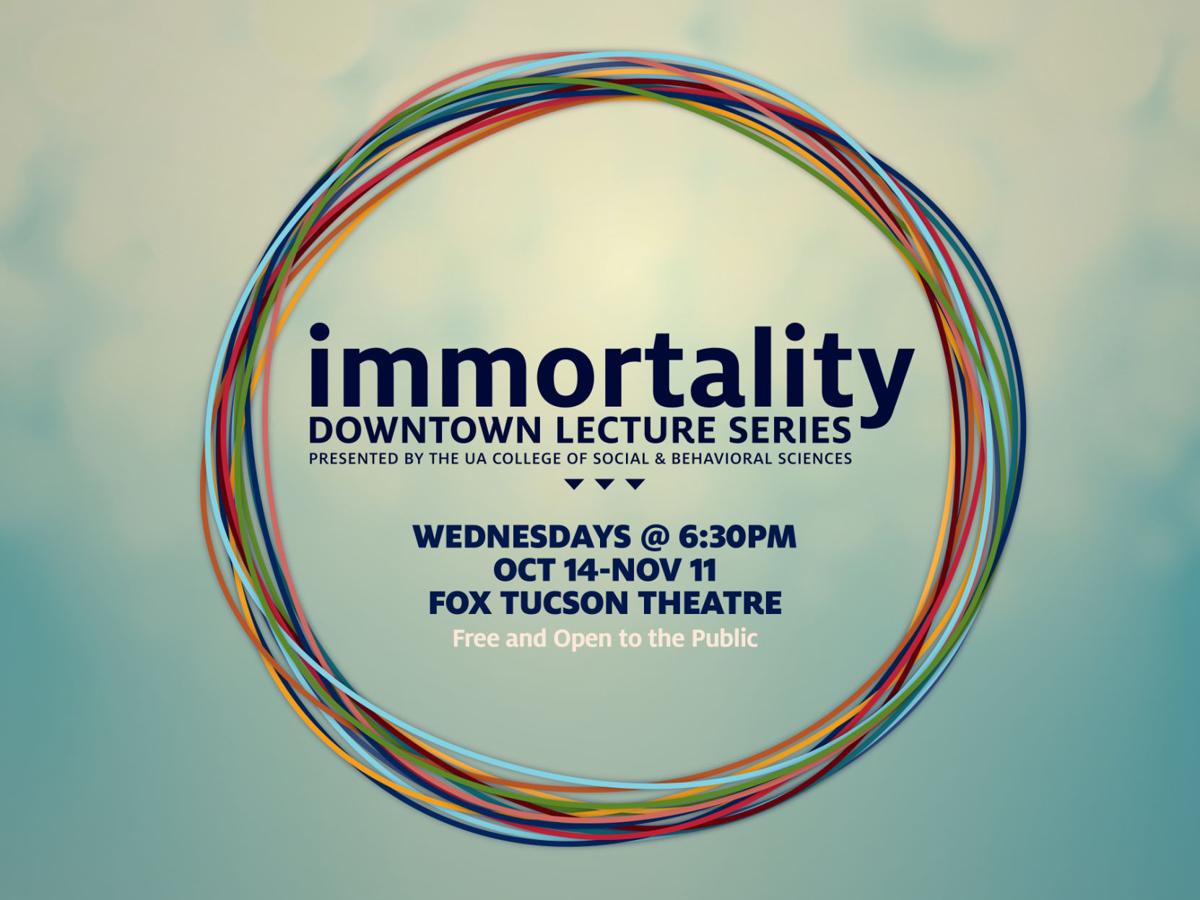J. Edward Wright likes to talk about death and what lies beyond; a glum subject for most, but one Wright finds exciting and fascinating.
“The study of immortality is really the study of life,” Wright says.
Wright, the director of the Arizona Center for Judaic Studies at the University of Arizona, an author and a popular professor, was the first speaker in the third annual Downtown Lecture Series. This year’s free weekly series, sponsored by the UA College of Social and Behavioral Sciences, examines immortality.
Dedicated to Wright’s friend and colleague, Bertram Seymour Falbaum who died July 25, Wednesday evening’s lecture, The Histories and Mysteries of Heaven, was delivered to a packed house in downtown’s Fox Tucson Theatre.
Wright began his lecture by asking who in the audience was going to die. Only a few people raised their hands.
“Either the rest of you are uncomfortable raising your hand in large groups, or this lecture is going to start out with some very bad news,” Wright joked.
Who says the afterlife can’t be funny?
Transcending Death
According to Wright, because death is a certainty for us all, we create ways to transcend death, many of them through our religious beliefs and rituals.
Wright spoke of “purposed burials” including an early Neolithic Natufian (13,000 to 11,000 B.C.) burial in the vicinity of Mt. Carmel, Israel. There, a couple was laid to rest on a bed of flowers, a stone beneath the man’s head. The flowers were preserved so well that they could be identified as to species.
“These people knew there is something powerful about death,” Wright said.
“As the brains of Homo sapiens evolved … we had the opportunity to explore things beyond hunting and gathering. … We were able to look into speculative things, like what happens after death,” said Wright before the lecture.
Reward and Punishment
“In its earliest manifestations, the afterlife was rather mundane,” Wright said. “People just went to some netherworld … and life just went on there. There was no moral code, no moral distinction — everyone just went to this other place.”
“The Greeks had an interesting religious and philosophical standard, that the soul was pure energy and that it left the body after death to return to the pure place from which it originated.”
To the extent that one’s soul was corrupted, however, returning it to a pure immortal state after death was hindered. According to Wright, this is an early example of a moral code being injected into an afterlife belief system.
As the concept of an afterlife became more sophisticated, we developed a heaven or hell scenario where good behavior was rewarded and bad behavior was penalized. The concept of heaven and hell became a central tenet in monotheistic religions, including Christianity, Judaism and Islam.
Other religions introduced a moral code through the concepts of karma and reincarnation.
Audience Reaction
The audience appreciated Wright’s humorous yet serious take on immortality, but wanted to hear more.
“He was very humorous … but it was far too short,” said Stephanie Zimmt-Mack. “I am very much looking forward to the other lectures. It’s a marvelous series and we think it’s a wonderful part of living in Tucson.”
“I really liked it, but I kind of wish he had more time to explore the different variations of immortality,” said SatBirKaur Khalsa.
Leaving a Legacy
“We are all born with the death gene,” Wright said.
The way to live on, according to Wright, is to leave a legacy. Wright hopes that his family, his teaching and his publications will be his legacy.
In a moving tribute at the end of the lecture, Wright introduced the audience, which included Falbaum’s widow, Margaret M. “Peggy” Houghton, to UA journalism student Seth Pines — the new Falbaum Fellow in Judaic Studies whose appointment is a fitting legacy to Falbaum’s well-lived life.





